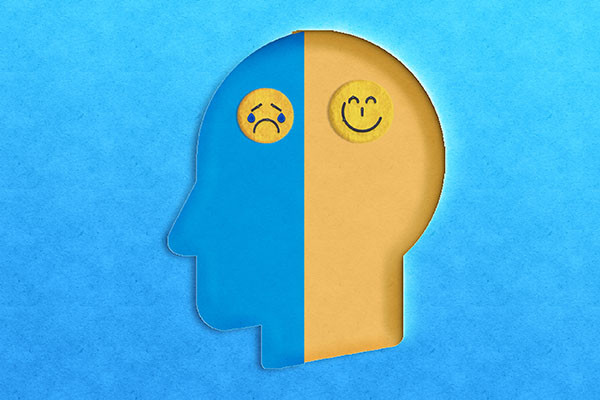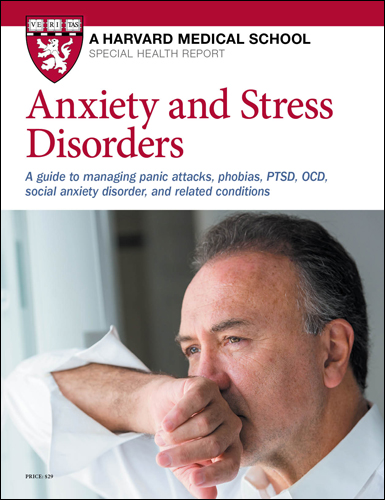How to recognize and tame your cognitive distortions

Two things I have accomplished, in different realms, seem like they would require entirely different skill sets, yet I have discovered an unexpected overlap. The first is overcoming a vicious addiction to prescription painkillers, and the second is training to be a health and wellness coach. The common skills and practices of these two experiences include
- a focus on gratitude for what is going well in my life and for those around me
- mindfulness and presence in the moment
- engaging in healthy habits: exercise, good nutrition, and, ideally, sleep (not my specialty!)
- connection with others, open and honest communication, and empathy, including self-empathy.
Additionally, a critical component to attaining the serenity and focus one needs to be a wellness coach, and to move past an addiction, is learning how to recognize and defuse the cognitive distortions that we all employ. Cognitive distortions are internal mental filters or biases that increase our misery, fuel our anxiety, and make us feel bad about ourselves. Our brains are continually processing lots of information. To deal with this, our brains seek shortcuts to cut down our mental burden. Sometimes these shortcuts are helpful, yet in other circumstances — such as with these unhelpful cognitive filters — they can cause more harm than good.
Unhelpful thinking and why we do it
Ruminative thinking — negative thought patterns that loop repeatedly in our minds — is common in many psychiatric disorders. This type of thinking also contributes to the unhappiness and alienation that many people feel. One certainly doesn't have to have a psychiatric diagnosis to ruminate unhelpfully. Most of us do this to a certain extent in response to our anxieties about certain situations and challenges. Rumination can represent an ongoing attempt to come up with insight or solutions to problems we are concerned about. Unfortunately, with the presence of these cognitive filters, it can devolve into a counterproductive and depression-worsening type of brooding. These unhelpful filters make whatever life circumstances we find ourselves in that much more anxiety-provoking and challenging.
What are unhelpful cognitive distortions?
The main cognitive distortions are as follows (and some of them overlap):
- Black-and-white (or all-or-nothing) thinking: I never have anything interesting to say.
- Jumping to conclusions (or mind-reading): The doctor is going to tell me I have cancer.
- Personalization: Our team lost because of me.
- Should-ing and must-ing (using language that is self-critical that puts a lot of pressure on you): I should be losing weight.
- Mental filter (focusing on the negative, such as the one aspect of a health change which you didn't do well): I am terrible at getting enough sleep.
- Overgeneralization: I'll never find a partner.
- Magnification and minimization (magnifying the negative, minimizing the positive): It was just one healthy meal.
- Fortune-telling: My cholesterol is going to be sky-high.
- Comparison (comparing just one part of your performance or situation to another's, which you don't really know, so that it makes you appear in a negative light): All of my coworkers are happier than me.
- Catastrophizing (combination of fortune-telling and all-or-nothing thinking; blowing things out of proportion): This spot on my skin is probably skin cancer; I'll be dead soon.
- Labeling: I'm just not a healthy person.
- Disqualifying the positive: I answered that well, but it was a lucky guess.
Emotional reasoning and not considering the facts
Finally, many of us engage in emotional reasoning, a process in which our negative feelings about ourselves inform our thoughts, as if they were factually based, in the absence of any facts to support these unpleasant feelings. In other words, your emotions and feelings about a situation become your actual view of the situation, regardless of any information to the contrary. Emotional reasoning often employs many of the other cognitive filters to sustain it, such as catastrophizing and disqualifying the positive. Examples of this may be thinking:
- I'm a whale, even if you are losing weight
- I'm an awful student, even if you are getting some good grades
- My partner is cheating on me, even if there is no evidence for this (jealousy is defining your reality)
- Nobody likes me, even if you have friends (loneliness informs your thinking).
How do you challenge and change cognitive distortions?
A big part of dismantling our cognitive distortions is simply being aware of them and paying attention to how we are framing things to ourselves. Good mental habits are as important as good physical habits. If we frame things in a healthy, positive way, we almost certainly will experience less anxiety and isolation. This doesn't mean that we ignore problems, challenges, or feelings, just that we approach them with a can-do attitude instead of letting our thoughts and feelings amplify our anxiety.
As someone who used to be an expert in getting tripped up by all these filters, I've learned to remind myself that whatever comes up, I'll deal with it as well as I can. I try to trust my future self to cope, in an effective way, with whatever life will throw my way. As such, there's no reason to worry about potential future problems in the here and now. If I worry about what might happen, then I have two problems: whatever hypothetical challenge that might not even come up in the future and a lot of unhelpful anxiety to contend with. As they say in the science fiction masterpiece Dune, "fear is the mind-killer." Being anxious or afraid certainly makes me less effective, no matter what I'm trying to accomplish.
A wise therapist once told me, as an example, if someone cuts you off in traffic, they are just cutting off a random car, not you, because they have no idea who you are. So there's no reason to take it personally. To personalize situations like this just makes you upset. If you don't take it personally, it changes it from "jerk cut me off" to "people should drive more safely."
I also avoid unnecessary catastrophizing (though this can be difficult when thinking about all that is happening in our world, including climate change). Above all, I try not to slip into emotional reasoning. None of us are devoid of all emotions that could undermine our logical processes. Everyone backslides and falls into old habits. We aim for progress, not perfection.
If you can set yourself free from these unhelpful cognitive filters, you will be more successful, more relaxed, and more able to enjoy your relationships.
Getting support to managing cognitive distortions
If you need assistance with challenging cognitive distortions, professionals such as therapists and coaches are skilled at helping people change unhelpful ways of thinking. If you are unable to find or afford a therapist or a coach, there are other resources available, such as apps to help with mindfulness and cognitive behavioral therapy, mutual support groups, group therapy or group coaching (which can be less expensive than individual treatment), employee assistance programs through your job, or online communities. Your primary care doctor or your health insurance may help connect you with other resources.
About the Author

Peter Grinspoon, MD, Contributor; Editorial Advisory Board Member, Harvard Health Publishing
Disclaimer:
As a service to our readers, Harvard Health Publishing provides access to our library of archived content. Please note the date of last review or update on all articles.
No content on this site, regardless of date, should ever be used as a substitute for direct medical advice from your doctor or other qualified clinician.
















